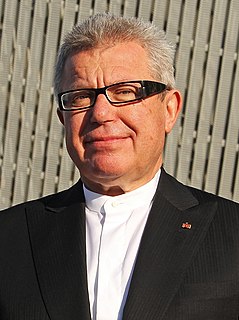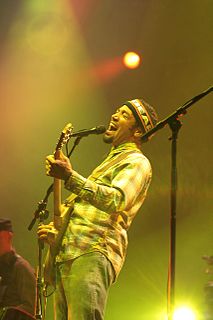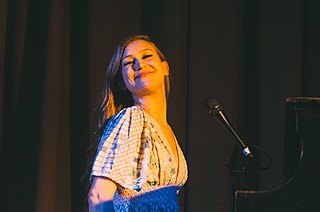A Quote by Billy Collins
When I'm constructing a poem, I'm trying to write one good line after another. One solid line after another. You know a lot of the lines - some hold up better as lines than others. But I'm not thinking of just writing a paragraph and then chopping it up.
Related Quotes
As soon as I start to write I'm very aware, I'm trying to be aware that a reader just might well pick up this poem, a stranger. So when I'm writing - and I think that this is important for all writers - I'm trying to be a writer and a reader back and forth. I write two lines or three lines. I will immediately stop and turn into a reader instead of a writer, and I'll read those lines as if I had never seen them before and as if I had never written them.
I did some writing for that movie. The remake of Planet of the Apes. I didn't write the script. But I wrote some lines that they ended up... not using. ... I wrote one line. I thought it would've been perfect. I don't know if anyone saw the movie. It's the scene where the ape general comes in. And they're trying to decide if they should attack right there, or wait until a little later. And I wrote: "Man these bananas are good!" But they didn't use it. I did all of that research.
I don't write as much now as I used to, but I write. The lines still come, maybe periodically, and I'll go through these little bursts of time where I write a lot of things then a long period of time where maybe I don't write anything. Or these lines will come into my head and I'll write 'em down in a little book, just little sets of lines, but I won't try to make stories or poems out of them. I'm doing a lot of that now, just the lines.
I don't kid myself in thinking that I'm on the front lines. I know the people who are on the front lines. I mean there are people in some freakin' significant places making on-the-ground social front line change. I've marched. I've put feet on the ground for what I believe and what I'm against with no compromise. And there are people who are risking a whole hell of a lot more than me to make change, that's for damn sure.
I have a lot of interest in interior rhyming; not just rhyming at the end of the lines, but playing around with rhymes within the lines, playing with where the syllabic emphases in the sentences are, lining those up at strange moments in the line of the song. I’m not sure if that comes across or not.
The two black lines on the armband means that they're the deceased's family. One line means they are either friends or acquaintances. One line of the arm, one line on the heart. The bastards who stood by my side with two lines, they'll be the hardest farewells I'll have to make in my life, and they're the luckiest fortune I've met in my lifetime.
It was early on in 1965 when I wrote some of my first poems. I sent a poem to 'Harper's' magazine because they paid a dollar a line. I had an eighteen-line poem, and just as I was putting it into the envelope, I stopped and decided to make it a thirty-six-line poem. It seemed like the poem came back the next day: no letter, nothing.
Televisison is like a factory line. You need discipline and focus. You have to hit your mark and know your lines. It's not that I don't know my lines when I do a film, but the pace of discovery is always a little bit more relaxed and nurturing and almost babying, in a way. Television toughens you up, and I like that, but I don't want it to toughen me up too much.






































